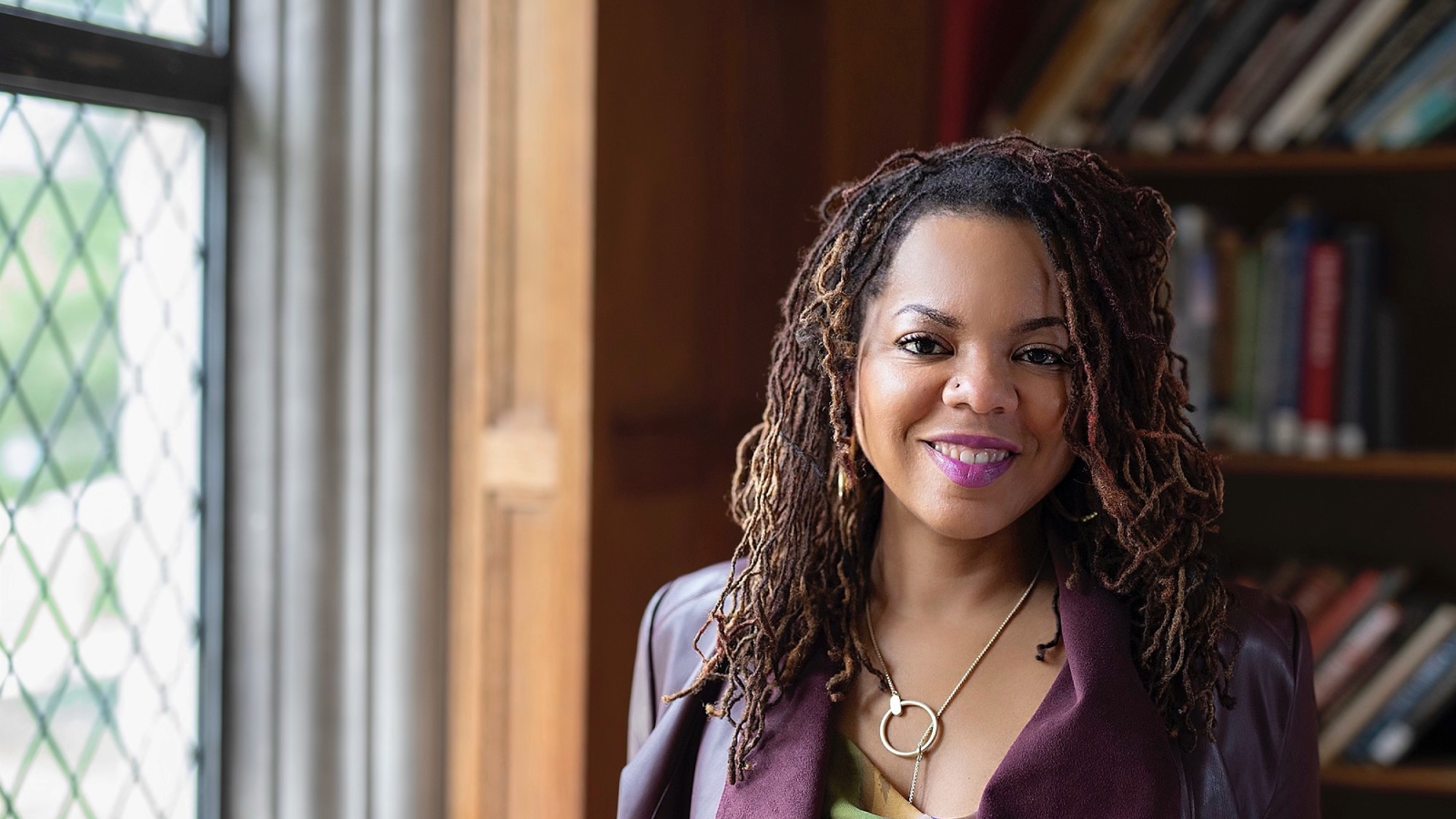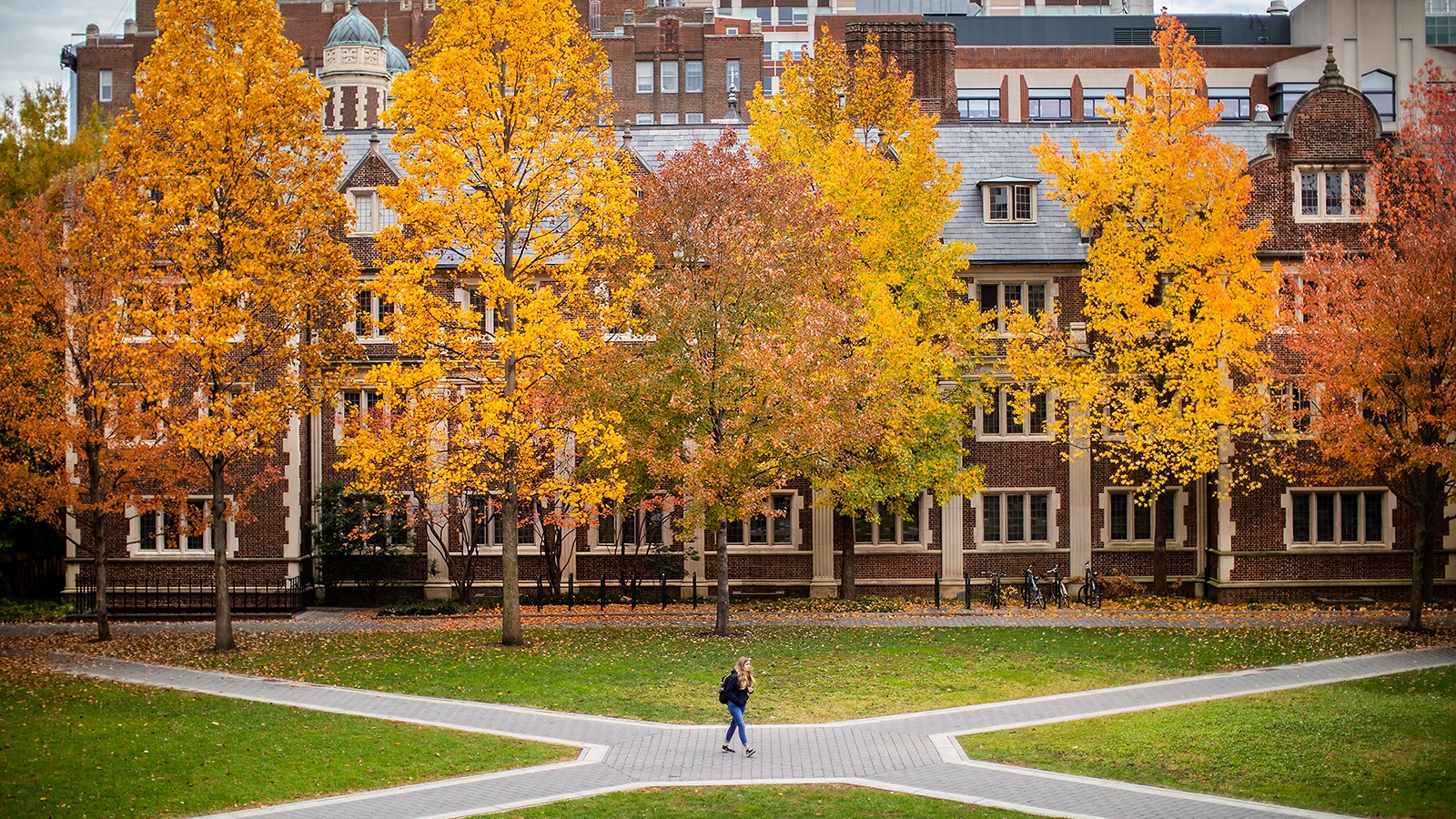A Poet Who Didn't Know It
Airea D. Matthews, C’94, went from economics major to Philadelphia’s Poet Laureate.

Writing always came naturally to Airea Matthews, C’94, but she was afraid to study English in college. Her family hadn’t encouraged reading, and she assumed her unfamiliarity with the classics would sideline her in literature courses.
So she chose a major that felt more approachable—economics—then spent 10 years in a corporate sales job and earned a Master of Public Administration. But she kept noticing a trend: To better grasp any given subject, she was distilling it into short clips that read like poems.
Finally, in 2011—17 years after finishing her undergraduate degree and one year after the birth of her fourth child—Matthews began pursuing a Master of Fine Arts in creative writing. She is now an associate professor and Co-Director of the Creative Writing Program at Bryn Mawr College, and is Philadelphia’s Poet Laureate. Her second book, Bread and Circus, will be published by Scribner next spring.
Here, Matthews traces her path from Penn student to professional poet.
When did you become interested in creative writing?
After graduating from Penn, I realized I’d actually been writing the whole time. I could understand the visual and spatial elements of economics by writing short clips about them, like lines in a poem. Without realizing it, I had been breaking down one discipline through another.
I wound up in sales and marketing with Proctor & Gamble, which has interesting ways of packaging thought: There's a persuasive selling format, a format for handling objections, and a format for communicating internally. That job showed me you can say the same thing two different ways and have two different outcomes, and taught me the value of diction, using the right words, saying the right thing. I discovered I loved language.
What inspired you to return to school again, this time for an M.F.A.?
It wasn’t one single thing. After my first grad program, my neighbor invited me to read at an open mic night. I went and met this community of writers who cared about art in a way I didn’t know was possible. Here, I met my passion. I started doing poetry slams and national competitions, and for the first time, I felt like I was doing what I was put here to do, which is to write.
Then a friend said, "You need to talk to this writer, Vievee Francis.” Vievee is now a professor at Dartmouth, but she lived in Detroit then and took me under her wing. We’d meet at this coffee house a couple times a week with my nursing daughter in tow. I'd have a blanket over my shoulder, holding her while Vievee explained the different forms of poetic rhetoric and language. Vievee encouraged me to get an M.F.A., and I applied and got into Michigan.
Was there a moment you felt you’d “made it”?
On a whim, I applied to the Yale Younger Poets Award, one of the oldest literary awards in the country. I was driving one night, in the pitch dark in the middle of winter, and got a call from Carl Phillips, a pretty renowned poet. He said, "I’m wondering if your manuscript is still available. I'm interested in publishing it for the Yale Younger Poets Award." I broke out in tears on the side of Livernois Avenue in Detroit. My first instinct was, "Somebody's playing a joke on me."
Shortly after winning the Yale Younger Poets Award, you won a Rona Jaffe Foundation Writers’ Award. How did this recognition change things for you?
When you make stuff, you never know if it's really good. The creation is the most important thing—it's not that it's good, it's that it's here. But when other people judge your art, it grows legs. I knew at that point I could go on the market and find an academic job teaching creative writing, which is what I wanted. I’ve always loved teaching. I saw Bryn Mawr’s post and just knew, "That's going to be my job."
How did your undergraduate experience shape your life?
I lived at the DuBois College House, which helped me understand and redefine myself. I had never been in an environment where I felt like I wasn't an "other." I don't define myself as an "other" anymore, but I used to, and living with a bunch of like-minded people who were doing incredible things helped change that.
I also met another student who's gone on to have an amazing literary and academic career, Erica Armstrong Dunbar [C’94]. She mentored me through my book auction process. Poetry books don't usually get auctioned, so it was a new experience for me, but I called on my Penn friend and she walked me through it.
What are your goals during the two years you will be Poet Laureate?
I have two projects underway. The first is a speakers’ bureau for poets. How do you make opportunities available for all the immensely talented poets throughout the city who aren’t known? The idea is, if one person gets a gig they can't keep, they offer it out in a clearinghouse for opportunities in the literary world.
The second is turning poetry into public art exhibits throughout the city, using things like billboards or digital displays, so we have what I call "serendipitous encounters" with poetry. There are poets all over who don’t get tapped. Do you have something you want to say? If so, then let’s get it out there.


